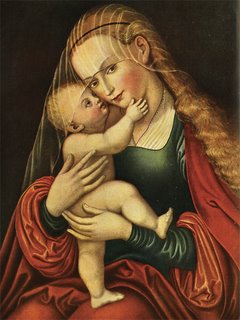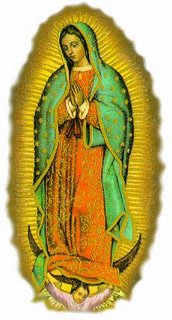Francis de Sales, CO OM OFM Cap. (French: François de Sales; 21 August 1567 – 28 December 1622) was a Bishop of Geneva and is honored as a saint in the Anglican and Catholic church. He became noted for his deep faith and his gentle approach to the religious divisions in his land resulting from the Protestant Reformation. He is known also for his writings on the topic of spiritual direction and spiritual formation, particularly the Introduction to the Devout Life and the Treatise on the Love of God.This summary is from Wikipedia but I liked the emphasis on St. Francis De Sales' gentle approach because he changed a lot of people's minds and hearts about Calvinism.
I think he is a good patron for today where we encounter so much ill informed opposition to the faith, both from within and without the Church. For daily living, I can especially recommend Introduction to the Devout Life as a down-to-earth, surprisingly modern book.
Here's an example of St. Francis's good advice which spoke to me when I was reading today's reflection in In Conversation with God, vol. 6. They are brief but were good reminders to me.
Humility is not only charity. It is also sweetness. Charity is the humility which appears on the outside. Humility is the charity which is on the inside.Here is one of my very favorite quotes from St Francis de Sales — perhaps I need to reread Introduction to the Devout Life. It's been a while.
========
We have to be indignant towards evil while at the same time being as polite as possible toward our neighbor.
Day is continually turning to night, spring to summer, summer to autumn, autumn to winter, winter to spring; no two days are ever exactly alike. Some are foggy, rainy, some dry or windy; and this endless variety greatly enhances the beauty of the universe. And even so precisely is it with man (who, as ancient writers have said, is a miniature of the world), for he is never long in any one condition, and his life on earth flows by like the mighty waters, heaving and tossing with an endless variety of motion; one while raising him on high with hope, another plunging him low in fear; now turning him to the right with rejoicing, then driving him to the left with sorrows; and no single day, no, not even one hour, is entirely the same as any other of his life.For anyone interested in this book, Scott and I discussed Introduction to the Devout Life on A Good Story is Hard to Find podcast.
St. Francis de Sales, Introduction to the Devout Life



















_-_The_Day_of_the_Dead_(1859).jpg)





.jpg)